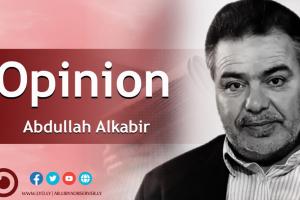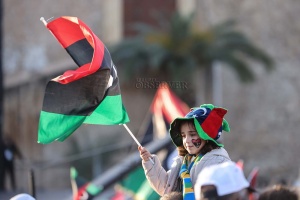By Abdullah Alkabir, a Libyan political writer and commentator
The American move and its potential repercussions

The growing American interest in the Libyan crisis is directly linked to Ukraine war developments. The intensity of the war, and the progress made by the Russian forces recently, has raised the degree of US interest in Libya to a new level.
The most prominent manifestations of this were the visit by the CIA Director, William Burns to Tripoli and Benghazi on January 12th. It was followed by US Chargé d’Affaires to Libya Leslie Ordeman’s meeting with Khalifa Haftar. He was accompanied by deputy commander of the US Air Force AFRICOM, Gen. John D. Lamontagne.
Then, Ordeman’s meeting with Aqila Saleh, Speaker of the House of Representatives in Tobruk, and the presence of US security and political figures at the last meeting of the 5 + 5 Military Committee in Sirte, in the presence of the UN envoy to Libya, Abdoulaye Bathily.
This American move brought the Libyan crisis back, to top news headlines, and ended the state of stalemate locally and regionally, as parties to the crisis and their allies sensed that Washington was going to the end to make the political change required to protect its interests and those of its allies, and this requires isolating the Wagner groups in Libya, and preventing them from threatening Europe, or disrupting energy market by using the Libyan oil card.
A political settlement between the parties to the crisis to come to agreement on the necessary legal procedures to conduct the elections was and still is an American objective. During the past two years, the US ambassador and special envoy, Richard Norland, has been following developments in this file, without tangible results except for maintaining the level of conflict to a minimum, and avoiding a relapse to military confrontation.
However, this shift in American interest, with the visit of its high ranking security official and former diplomat who held many position, and with extensive experience in the Libyan file, and the dependence of President Biden's administration on him in many difficult tasks across the world, means that there is a potential threat to US national security and security of its European allies emerging from the Libyan gate, that needs more than just ending the state of division, and unifying the country politically through elections to renew the legitimacy of Parliament and form a unified government.
Return of the Military Committee to resume its meetings after a break that lasted about four months, and its support from the United Nations and some international powers, confirms that there is a determination to crown the efforts of the Committee by forming military units from the east and west, which will be the nucleus of the unified military institution, and it will take over the protection of oil fields and wells, and perhaps a military confrontation with Wagner groups if necessary, with the USA and its allies providing the necessary support, similar to the confrontations of Al-Bunyan Al-Marsous forces with Daesh in 2016, and this scenario will turn Libya into another zone of conflict between Russia and Western countries.
Although, press reports commenting on Burns' visit, underscored that the US administration's intention is to limit the influence of Wagner, and behind it Russia, in Libya, the possibility of the confrontation escalating to the point of a military clash does not seem strong, given the focus of military efforts on Ukraine as the current battle ground.
Moreover, about half of Wagner forces were withdrawn from Libya, and driven to front lines of the Ukrainian war, and what remains of them cannot hold on for long, especially if supplies they were getting from Haftar’s forces were cut off, after the US government classified them as a criminal organization, and imposed sanctions on them. Haftar, being an American citizen, will have to stop dealing with them, so it is more likely that he will implement some measures that will limit their movement, and end any potential threat to the expected political transition, or to oil production and flow.
The regional response to the American moves came quickly with the meeting of the head of Egyptian intelligence and the official in charge of the Libyan file, Abbas Kamel, with Aqila Saleh and Menfi, to settle any differences between them and prepare for the next developments. Meanwhile, Turkish intelligence Chief, Hakan Fidan, met with leaders of Libya’s western region, Dbeibah, Al-Mishri, Al-Lafi and Al-Kabir, in a picture that clearly reflects rapid return of the map of local alliances, to its regional bases due to the Egyptian-Turkish competition over Libya.
The repercussions of the American moves will continue to develop at all levels, with the beginning of preparations for the alternative to the House of Representatives and the High Council of State (HCS), to assume the task of providing the legal basis for elections.
Local political entities and figures have no intention of leaving the scene, and the countries involved in the conflict will seek to preserve their gains, and the race towards reserving a position in the next stage already started.
There are indications that there is an international consensus to bypass the House of Representatives and the HCS after their repeated failure, and the UN mission began preparation for a new political dialogue forum, which would establish a constitutional basis and electoral laws, pending announcement during a briefing by the UN envoy Abdoulaye Bathily to the UN Security Council session by mid-February.
Disclaimer: The views and opinions expressed in this article are those of the writer, and do not necessarily reflect those of the Libya Observer



